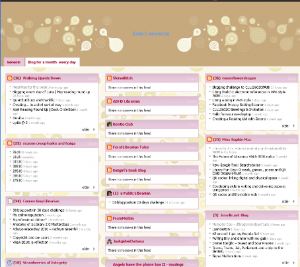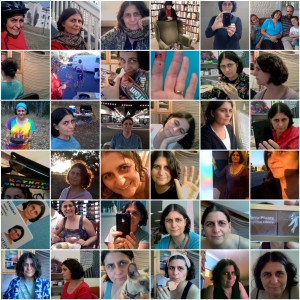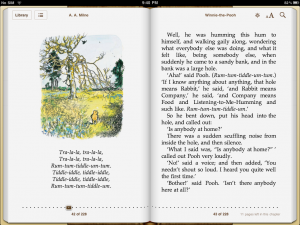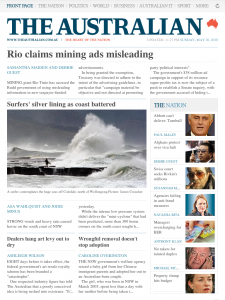A library’s role is not to supress ideas – not matter how dangerous or loony I may believe those ideas to be, nor how wrong I think they are. That is why I support the State Library of Western Australia’s decision to provide a venue for a talk from people of the Anti-Vaccination Network on Tuesday 1 June.
I do not agree with the claim on the Sceptic’s Book of Pooh Pooh that the State Library CEO, Margaret Allen was putting the health of WA children at further risk.. I think they are shooting the messenger.
My tiny, fragile baby boy stopped breathing for over a minute as I was breastfeeding him on the day I took him home from hospital. We had waited for three weeks to take him home after he was born 2 months premature, so it was a huge shock to hear from the doctors that they suspected that he had whooping cough. Tiny babies with whooping cough don’t cough, just turn blue and stop breathing.
After a couple more months in hospital we took him home, but that experience clarified for me – vaccinating our children is a community issue. When a parent decides not to vaccinate they are not making a choice just for their own kids, but for mine as well. There is overwhelming good science supporting the health benefits of vaccination and I think it is a selfish and shallow to not vaccinate.
I have many other personal beliefs. I choose a mainly vegetarian diet for my own health and the health of the planet. I do not believe in an afterlife. I think depictions of violence that permeate our popular culture desensitizes people and begets more violence. I think that anyone who eats beetroot is slightly addled. When I go to work as a librarian, those beliefs come with me – however a key part of my job is providing access to ideas that are in direct conflict to what I believe is right for myself and for my society.
A library’s role is to provide access to information and connect people to that information. We seek to provide a balanced and varied collection, but not to judge the information we are providing, nor the people who are seeking it. This is not because it is almost impossible to please everyone, so libraries are take the easy way out by sitting on the fence and trying to be everyone’s friend.
When I buy a compilation of war comics for the Young Adult section, order ” Delicious Prime Ribs and how to Barbeque Them” for the non-fiction section, accept a donation from the Church of Scientology of one of Ron L Hubbard’s works or put a pamphlet from the Anti-Vaccination Network on the shelves I am doing something very serious and vitally important for our society and its freedom. I am protecting my own and my children’s right to think for ourselves. I am creating a society that trusts its citizens to think critically and make their own decisions with no source of information forbidden.
As a librarian I provide the information, but I do not author it. It is not my message, even if I work my hardest to build a structure where as many people can easily and immediately access that message and then make up their own minds.
If the State Library of Western Australia wanted to give space to the Beetroot Appreciation Society for a public outpouring of all things Beetroot then so be it. I may well organize my fellow Beetroot Abhorrers and ask for similar space to air our opinions. I would hope that people with a brain who attended the Appreciators’ event would use that brain to evaluate the arguments being put on the night. I would appreciate attending their forum and asking tricky questions about the dirt smell and that deep,dark purple ooze. I would be very glad that I lived in a society where there was a venue that protected my right to have ideas outside the mainstream.
I think the free and open discussion of ideas, like the decision whether to vaccinate a child, is a community issue. If a parent doesn’t vaccinate their child, they are putting my child at risk. If I claim the right to stop your ideas from being heard, then I am putting my own right to be heard at risk.
I am not arguing that ideas should be heard without rebuttal, argument, critical thought or judgment. I am arguing that they should be heard and that libraries exist as a vital institution to protect the right for that to happen.
Instead of deflecting the vaccination debate to one about whether loonies should be able to spout their bullshit in a library, it would be far more sensible to start public debate about what happens when as a population we uncritically accept bullshit and do not think for ourselves. This clear and entertaining cartoon showing the Facts of What Happened in the Case of Dr Wakefield (Mr Vaccination-Causes-Autism) by Darryl Cunningham is a great place to start.
Post 3 of the 30 posts in 30 days challenge.








